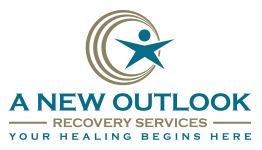11|2025
Learn the difference between focus, concentration, and attention to understand how they affect our ability to complete tasks and accomplish goals.

Opening Question:
– Have you ever tried to write an important email to your boss or professor, only to get distracted by a friend and forget what you were going to write?
– Examples:
– Reading a book but getting distracted by replying to a friend on Facebook.
– Your cat demands attention and pats.
– Realizing you’re too hungry to focus, so skipping reading for the day.
– Watching a YouTube video or Netflix movie, but after spending an hour picking it, you get bored in a minute and switch to Instagram.
Key Issue:
– The common problems: lack of concentration, short attention span, and difficulty focusing.
Clarifying Key Concepts:
– Attention: It’s like the brain’s highlighter. It filters out distractions and directs focus to one piece of information.
– Concentration: This is the lock mechanism. It shuts out unimportant information, allowing you to focus on a single stimulus and use your mental resources on it.
– Focus: Combines discipline and intention. Focus is about directing attention to one point and blocking out distractions, whether for tasks like finishing a paper or broader goals like acing finals. Think of focus like a laser pointer.
Summary of Concepts:
– Attention is a resource, concentration is the effort, and focus is the object.
Contextualization in the Digital Age:
– In today’s world, we are constantly bombarded with distractions, and there are countless online courses, workshops, and books promising success in maintaining attention and focus.
– These concepts (attention, concentration, and focus) are complex, and researchers are only beginning to understand them fully.
Course Goal:
– The goal of the article is to explain how these mental processes work in simple terms, so you can better understand methods to improve your attention and focus.
Practical Tips for Improving Attention:
1. Physical Pose: Assume a position that supports concentration. Relax your body and avoid unnecessary movements.
2. Emotional Position: Make the task interesting to you. While willpower can help, it’s easier to concentrate when you’re genuinely excited about the task.
3. Mental Position: Break down tasks and set clear objectives to make your work easier to navigate.
4. Fake It Till You Make It: If you’re struggling, imagine how you would act if you were fully engaged in the task—this helps to trick your brain into focusing.
These tricks will gradually help improve concentration. Are you ready to continue practicing? Stick around for more, and thanks for watching!
Key Themes:
1. Distractions & Attention Problems:
– Common scenarios of being distracted from important tasks (e.g., e-mails to professors or bosses).
– Addressing the underlying issue of lack of attention and focus.
2. Definitions & Differences:
– Attention filters information, Concentration locks onto one stimulus, and Focus channels mental resources to a single task.
– The difference between the concepts is crucial for improving focus.
3. The Complexity of Attention & Focus in the Digital Age:
– Emphasis on how the modern world with its constant digital distractions makes focusing more difficult.
– Understanding the scientific mechanisms behind attention, concentration, and focus is key to improvement.
4. Practical Tips for Improving Focus:
– Practical advice for enhancing attention through physical, emotional, and mental positions.
– Encouragement to “fake it till you make it” when struggling with focus.
5. Article Goal & Reassurance:
– The article aims to break down complex theories into simple terms for easier application in daily life.
– Acknowledgement that it might be a lot to take in, but the practical exercises will come later.
A New Outlook Recovery Services provides therapy for individuals dealing with mental health challenges, relationship and marriage issues, and substance use disorders. Our services include Mental Health and Substance Use Disorder PHP/IOP programs and NeuroStar TMS therapy. Proudly serving communities across Colorado. Call us today for more information at (303) 798-2196… Your Healing Begins Here.
Categories:: Mental Health, Personal Growth, Resources